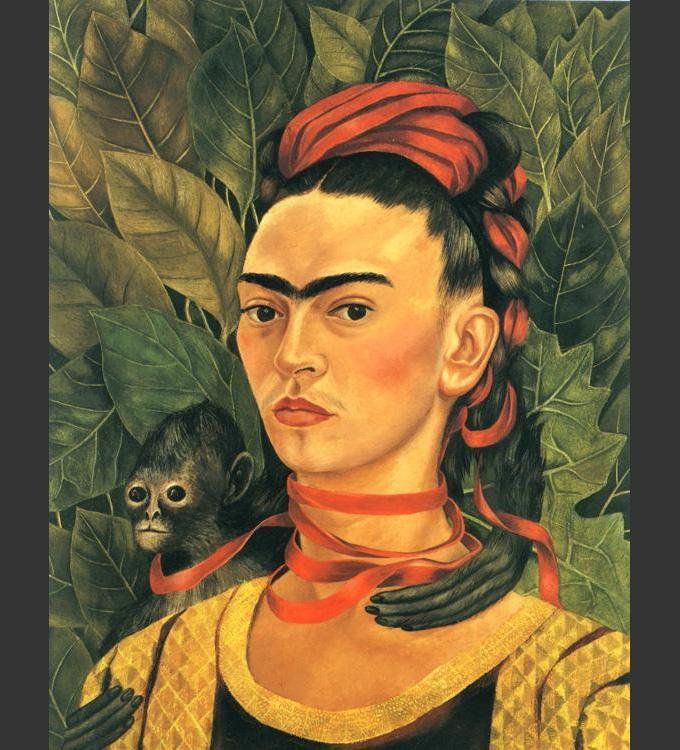EXHIBITION
From March 20th to August 31st, 2014 the Scuderie del Quirinale Palace in Rome will host a major exhibition of the Mexican artist Frida Kahlo (1907-1954), the undisputed icon of twentieth-century Mexican culture, and forerunner of the feminist movement.
There is no doubt that the myth formed around the figure of Frida has now assumed a global dimension. Her works reflect her life story, often punctuated by dramatic events (at birth, Frida suffers from spina bifida, which left her crippled) and also the history and spirit of the world to her contemporary. Frida is a passionate young woman and passionately dedicated to painting and despite the physical pain due to a bus accident she was involved at 17, the girl would continue to be rebellious and unconventional. Discharged from the hospital she is bedridden at home with a plaster for many months.
This circumstance pushes her to read many books, many of which were about the communist movement. Indeed, her paintings do reflect the social and cultural transformations that lead to the Mexican Revolution. But this forced immobility creates also fertile ground for her vocation. Her first subject is her foot that she is able to discern between the sheets. As a support of this blossoming passion her parents buy a four-poster bed with a mirror on the ceiling: it is here that she begins a series of self-portraits. “Feet, what do I need you for when I have wings to fly?” After the plaster is removed, Frida Kahlo recovers the ability to walk, despite the strong pains that will accompany her for all the years to come.
The show intends to present and explore the artistic production of Frida Kahlo in its evolution, from the beginning – with the folk and ancestral art -to the art of political ideology inspired by the Mexican graffiti art of Rivera and Orozco. However, it is the theme of self representation that will stand out in this exhibition with many of her self-portraits. “I paint myself because I am so often alone and because I am the subject I know best”.
Nicoletta Lucia Paganucci


